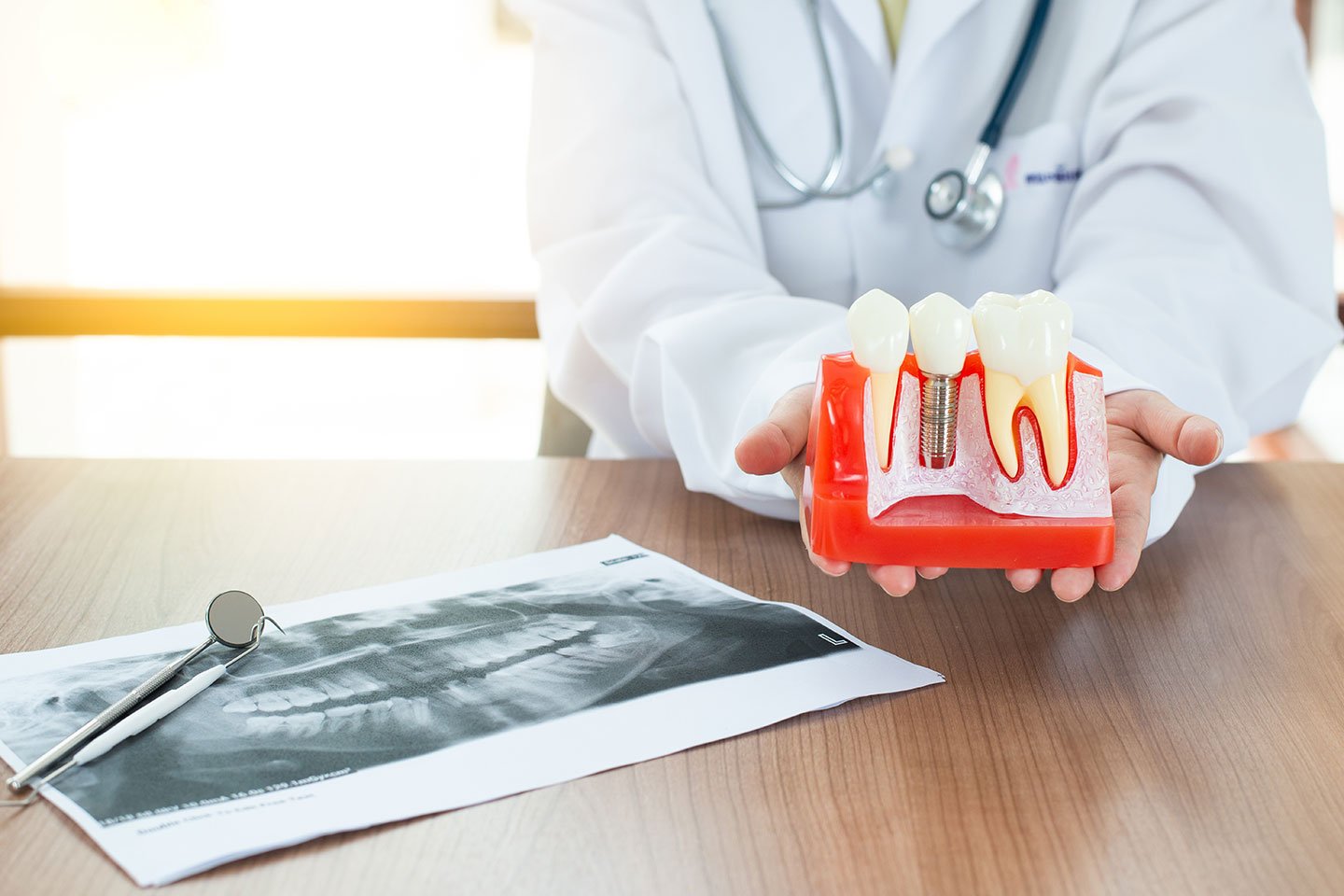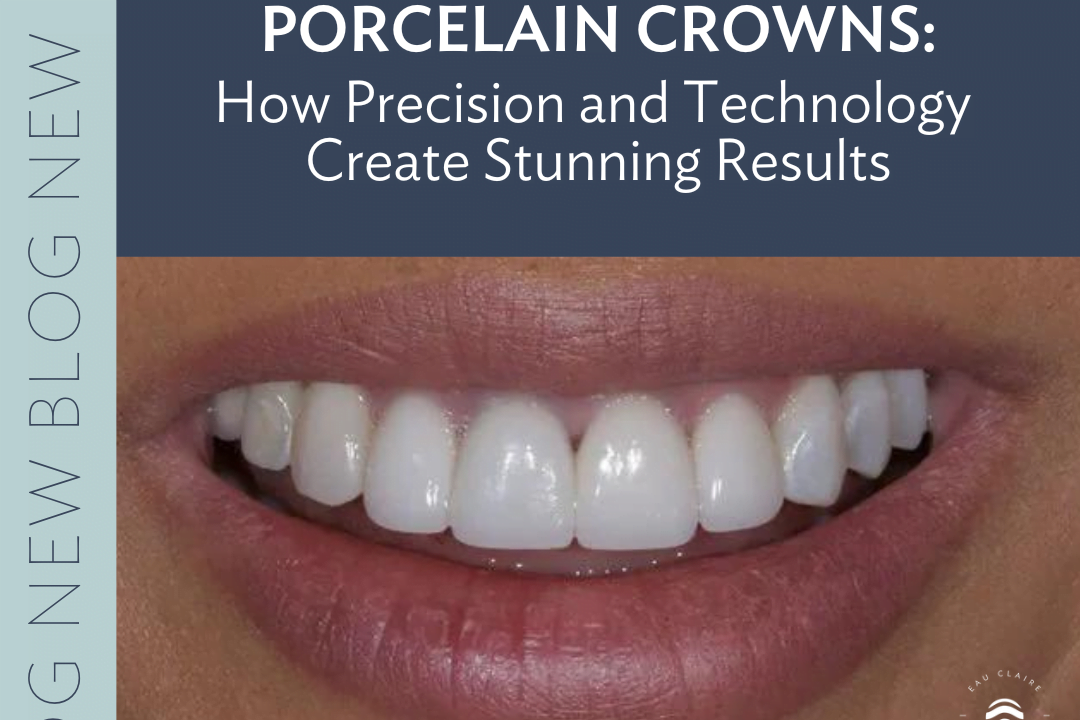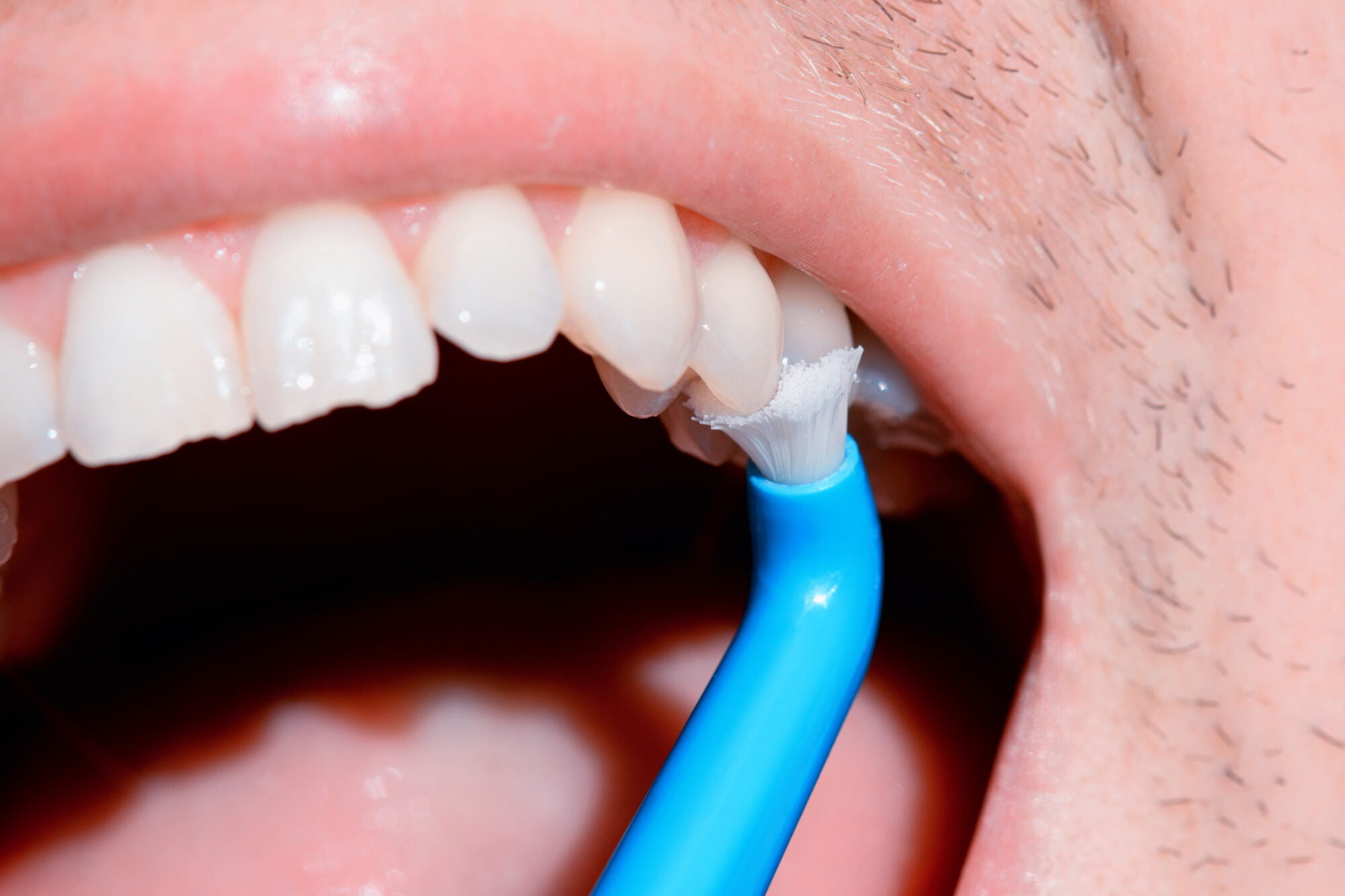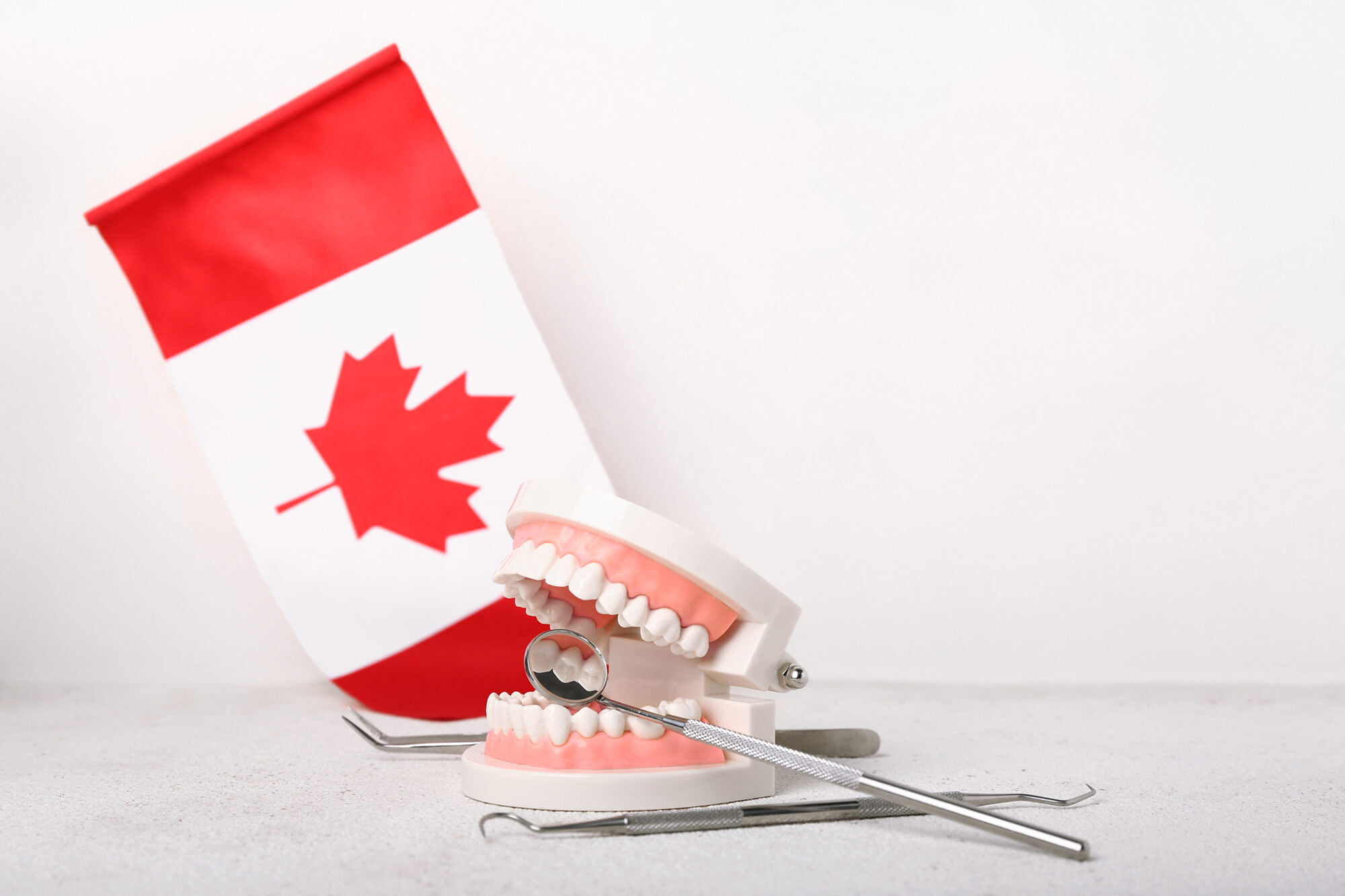7 out of 10 Canadians develop gum disease at some point in their lives – but do dental implants increase your risk? Not exactly – but gum disease can cause your dental implants to fail. That’s why keeping up with your oral hygiene routine is crucial, especially if you’ve invested in implants or other dental treatments.

Your gum tissues and jawbone need to be strong enough to support your teeth. Your dental clinic may even suggest a bone or soft tissue graft to better your chances of a successful implant. After all, they are the best solution for missing teeth.
Read on to learn more about how gum disease can affect dental implants.
How Gum Disease Affects Dental Implants
Gum disease has four stages. These stages have symptoms ranging from mild inflammation and bleeding (gingivitis) up to the loss of teeth (advanced periodontitis).
If plaque and tartar are not removed properly, here is what typically happens:
- The plaque builds up on your teeth and re-forms quickly. Even brushing twice a day can’t keep up with the bacteria.
- If the plaque isn’t removed in a timely manner, it will turn into tartar under your gums. This can only be removed by a dentist/hygienist, not by your regular brushing routine.
- When left alone, the plaque and tartar buildup will lead to the mild stage of gum disease, known as gingivitis. This stage is still reversible with cleaning and oral hygiene instruction from your dental clinic.
- If you continue to have gum inflammation, you can develop periodontitis. This is when the space between your gums and teeth fills with plaque, tartar, and other bacteria. You can lose gum tissue, bone, and even teeth if this isn’t treated.
Gingivitis is very common in children and adults of any age. If you have gingivitis, your gums may bleed a bit from irritation when brushing or flossing. You may notice an area feels sore to floss (HINT: if this happens, don’t avoid flossing – keep at it and it will go away!). It’s important to see your dentist and dental hygienist to evaluate your gum health if you’ve noticed bleeding while you brush or floss.
If inflammation is allowed to progress without treatment, bone loss can occur. You may notice recession, mobility or your teeth could even begin to shift. You may also have difficulty eating certain foods.
The early stages of gum disease are typically asymptomatic, and if a patient is not seeing their dentist regularly they may not notice anything is wrong until it is very advanced. This is why a regular trip to the dentist to assess risk for gum disease and clean your teeth is crucial, as advanced stages of the disease are very difficult to treat successfully. Patients at high risk should be seen to have their teeth cleaned and biofilm removed once every 3 months. For low risk patients, usually once every 6 months is adequate.
Can you get dental implants with gum disease?
If you have lost teeth due to gum disease and would like implants to replace them, it is best to work with your dentist to get the disease under control (reduce bacteria build up, lower inflammation) prior to placing implants for the best chance of success long term.
Although implants can’t get cavities, they can still be affected by gum disease. If patients do not maintain good oral hygiene and regular dental cleaning visits, or if they continue to smoke, they have the risk of developing peri-implantitis. This form of gum disease occurs when bacteria cause bone loss around a dental implant, and may result in the implant needing to be removed or even falling out. Symptoms of this include:
- Bad breath
- Bleeding
- Swelling or exudate (discharge) around the implant
- Your implant becoming loose
Causes of gum disease and peri-implantitis.
You can get peri-implantitis the same way you’d get gum disease. The common causes include:
- Genetics
- Poor oral hygiene
- Irregular dental care
- Underlying medical conditions, such as diabetes
- Smoking or chewing tobacco
How to combat gum disease.
Gum disease can be very difficult to treat if you ignore it for too long. But by staying on top of your oral health, early changes can be detected and strategies can be implemented to reverse the disease. Here are our top three tips for combating gum disease:
- Get regular cleanings: This is the only way to remove the biofilm and tartar build-up that naturally occurs over time from eating and drinking. Guided Biofilm Therapy is the most effective, least invasive way to clean teeth. We have seen amazing results in our patients since switching to this new system.
- Clean between your teeth: Your toothbrush can’t get in between the hard-to-reach places that food and bacteria love to hide. Using a Waterpik and flossing daily will help remove this buildup and keep gums healthy.
- Use an electric toothbrush: these clean better without causing gum recession.
Gum disease is preventable if you continue to maintain a good oral hygiene routine and visit your dentist for regular professional cleanings. The recommended cleaning interval (3, 4 or 6 months) depends on your risk for the disease.
Dental implants are an excellent solution for missing teeth and aren’t a risk factor for developing gum disease. If you have questions about if dental implants are right for you, contact us for a consultation.
Have you ever suffered from gingivitis? What did you have to change for it to get better? Share your story with our readers in the comments below who want to improve their oral health.




Leave A Comment